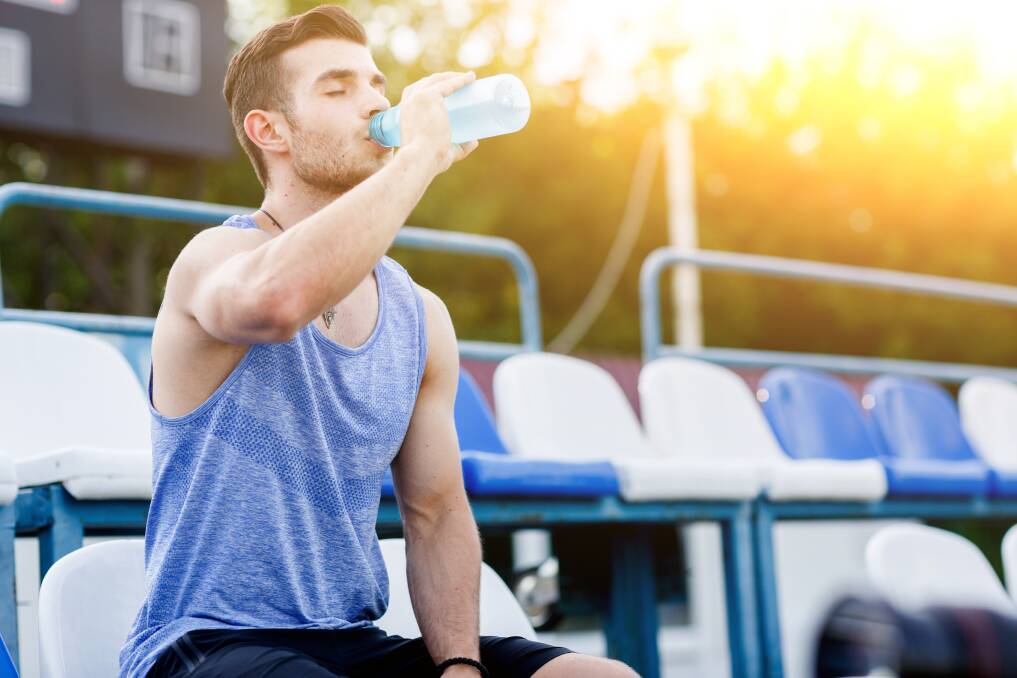Sport in the ACT will have to adapt to climate change, according to a comprehensive report published by the territory's government.
Subscribe now for unlimited access.
$0/
(min cost $0)
or signup to continue reading
The document paints a bleak picture of increasing danger for athletes from "heat stress" as temperatures rise in Canberra.

"Understanding heat exposure as a genuine health threat and sporting challenge, and reducing exposure will become a critical challenge as the ACT experiences more frequent, and more intense heatwaves," says the report titled "Heat, Humanity and the Hockey Stick: Climate Change and Sport in Canberra".
And it says that it's not just sportsmen and women who need to worry. People who just like to exercise will also be affected, particularly older people.
"Unpredictable conditions, for instance extreme heat and cold temperatures, will limit incidental activity such as walking to the bus stop or gardening. Social isolation and mental health problems may be compounded which will flow on to health budgets," the report says.
Global warming will also bring more lawyers onto the sports field, the researchers say, because sports organisations have a "duty of care" for participants.
"The potential for costly legal action due to climate change injuries is real, and growing climate change litigation is increasing. The breach of a legal duty of care to sports people has implications for clubs, facilities managers, sporting ground owners and operators," the report says.
In 30 years' time, winter as we know it will be non-existent.
- Heath, Humanity and the Hockey Stick: Climate change and sport in Canberra report
Sports organisations will need to be more involved and aware if they want to avoid litigation. "Provision of water and shade during or after the heat or extreme event will arguably not provide a defence to potential litigation, particularly if the athletes are young and vulnerable." The report argues that organisers will need to provide track-side medical help.
"In the absence of highly effective monitoring, sport organisations and administrators should adopt a cautious approach."
The report suggests publicity campaigns to educate people about the rising dangers of heat when they exercise in the ever-more brutal sun.
But the report also warns that global warming may put people off exercise. It cites research from the University of Canberra which "shows that the most common heatwave coping strategies are staying indoors and increasing water consumption.
"Most people also reduce strenuous activity such as exercise, housework and gardening, and used fans or air conditioning to stay cool in their home."
The report authors wonder if more indoor sport, including eSport, might be an answer.
They concede that many computer games do not offer much exercise but say some of the new ones do: there is a cycling game where the rider sits on the exercise bike, peddling away, and the screen gives a simulated route (different settings can be chosen, from an imagined virtual world to real cities and mountainous roads).
The report authors reckon that global warming will badly affect the ski resorts near Canberra. "Projections show a continuing trend of reduction in snowfall depending on altitude and emissions levels, with worst case scenarios projecting years without any snowfall being observed from 2030."
"In 30 years' time, winter as we know it will be non-existent."
It says that resorts such as Perisher and Thredbo are switching to renewable energy "to protect natural assets and jobs that depend on them."
The report outlines the perceived dangers of climate change for sports participants but also suggests things which organisations should do.
It concedes that the argument over grass or synthetic surfaces is not clear. Grass needs watering but it also sucks in the carbon dioxide which warms the atmosphere.
"Synthetic playing surfaces may appear to be a good investment in water-constrained times. They require less water, no fertiliser or pesticide for maintenance, and sustain higher weekly usage hours than grass," the report says.
"However, synthetic surfaces have a short life of approximately 8-10 years, do not cool the environment or provide a carbon sink, and produce micro plastics when breaking down which is a storm water runoff risk."
The report's conclusion? "Sport administrators, who have to plan for climate change futures and develop climate-ready facilities to adapt to extremes, and design and implement new technologies, equipment and practices, will need to balance these competing issues."
The report urges sports clubs to use non-drinkable water for irrigation. It is silent on whether users of water like golf clubs need to do more to conserve a scarce resource.
Swimming pools should consider more efficient water pumps which vary their speed according to how many people are in the pool.
They should, the report urges, recycle cans. "Sporting clubs are large consumers of beverage containers and make an ideal hub for the initial collection of beverage containers. The benefits are clear."


